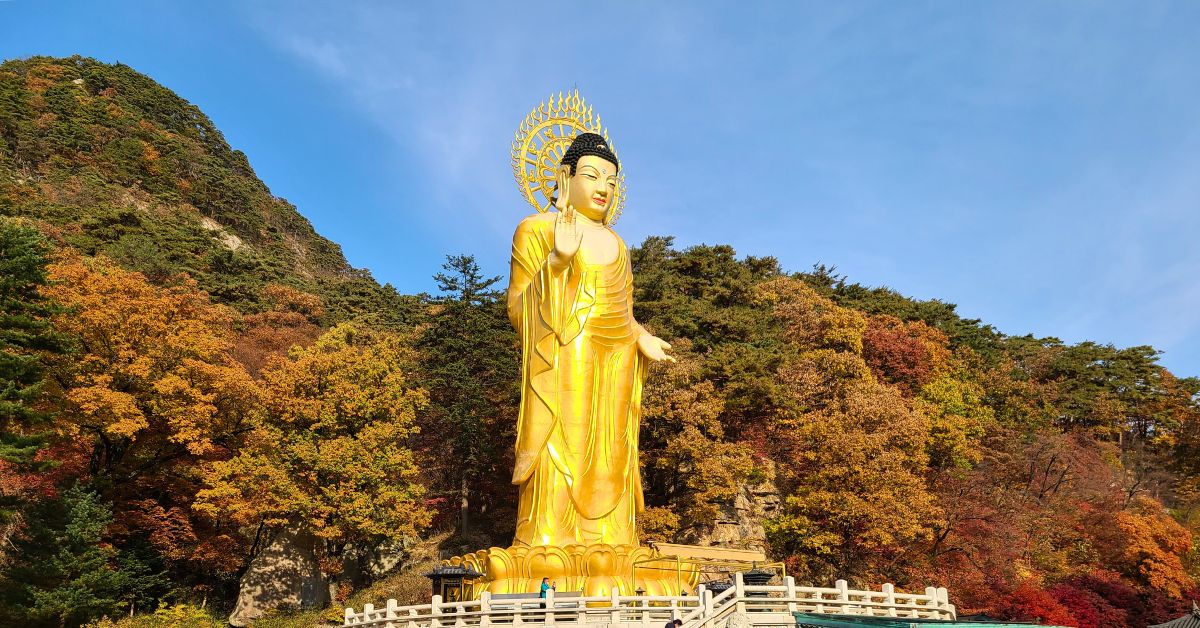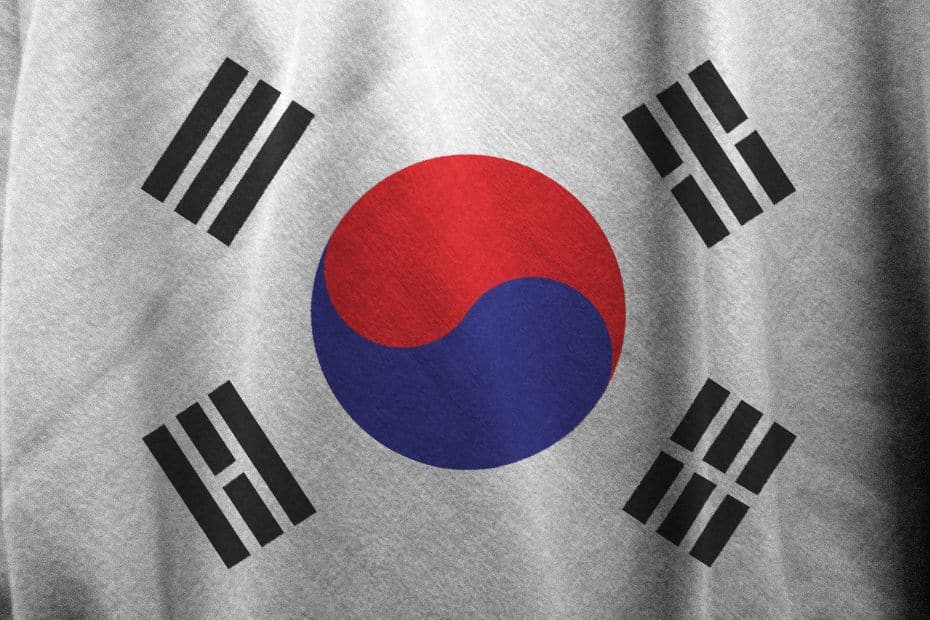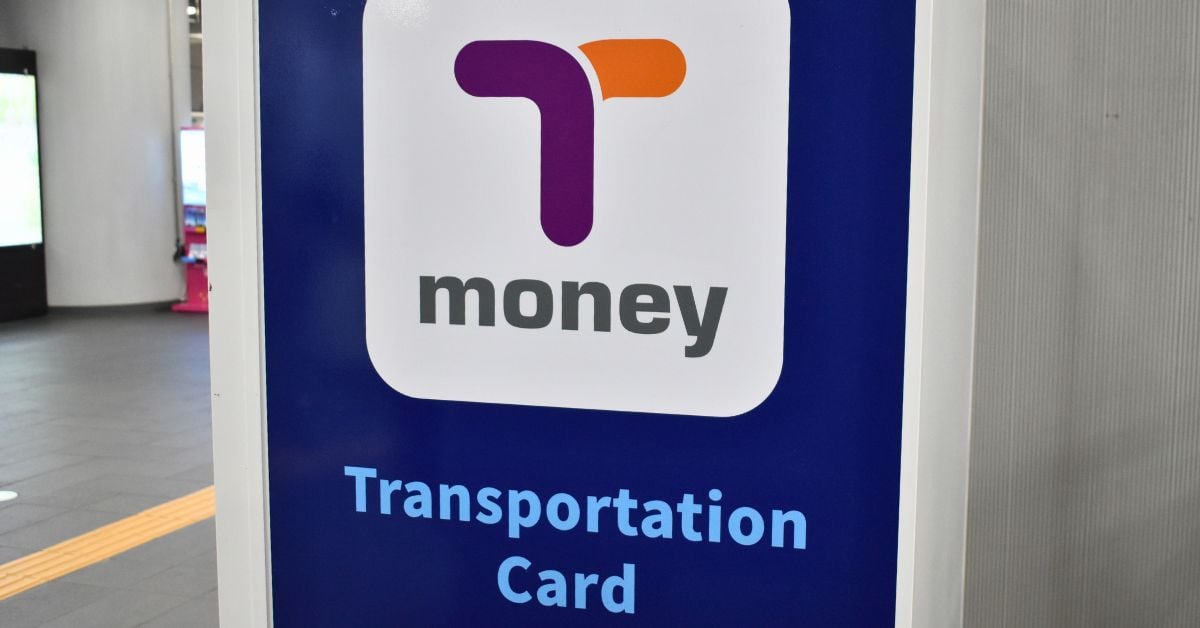Korea has long been known as a homogenous society, one with a strict sense of national identity and little ethnic diversity. However, the number of foreigners in Korea has been growing for decades, rising by leaps and bounds to around 3-5% of the total population with the number of expats in Korea exploding to 25 times the level seen in the early 1980s.
You might be surprised to know that there are actually quite a lot of foreigners in Korea and that foreigners in Korea now make up over 4.4% of the whole population. But how many foreigners in Korea are there exactly? Well, according to the latest figures, there are 2,258,248 foreigners in Korea, which is up 5.8% from last year’s total.
Whilst this seems high, it’s actually a surprisingly large drop from the December 2019 peak of 2,524,656. The number of foreigners living in Korea dropped during COVID, but has started to grow once more. Where are these foreigners in Korea from? Why do foreigners choose to live in Korea? And why is the number of foreigners in Korea declining? Find out all these answers, and more, below.
Affiliate Disclaimer: This site contains affiliate links and I may earn commission for purchases made after clicking these links.
Where Are Foreigners In Korea From?
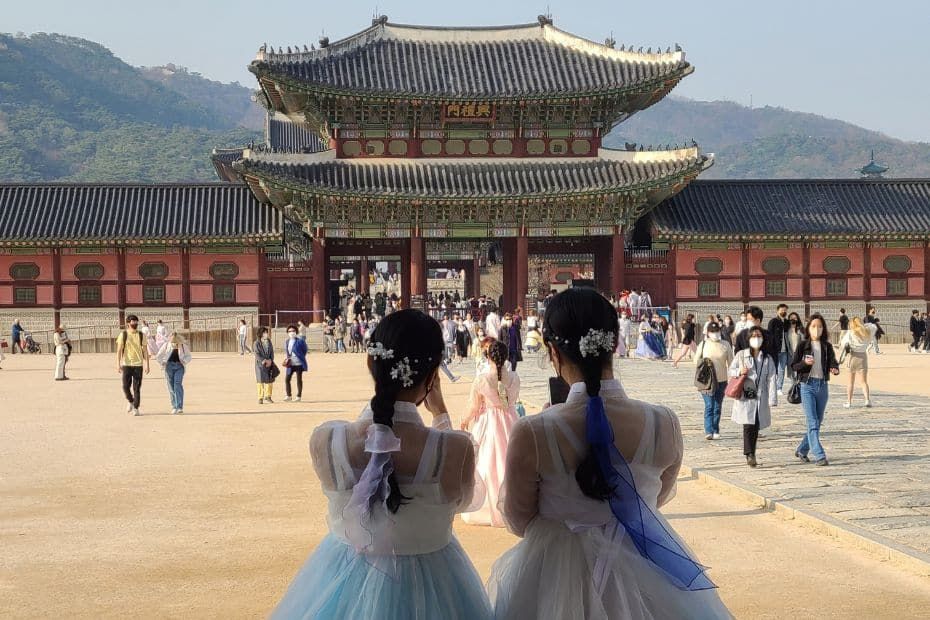
Korea is an attractive place that has drawn in immigrants from around the world. Some come to Korea to work, others to study, others to learn about the culture. Some foreigners in Korea have settled down and had a family in Korea and obtained Korean nationality or permanent visas.
Marriage is a major reason that foreigners choose to reside in Korea, with international couples (Korean & foreign) rising steadily over the last few decades. There are also many US soldiers stationed in South Korea, serving to help protect against threats from North Korea. The close ties between the two nations means that’s unlikely to change any time soon.
Which Country Is Most Represented In Korea’s Foreigner Population?
China. There are more Chinese immigrants in Korea than the other top 12 countries combined. As of 2024, there were over 731,000 Chinese immigrants in Korea, down from 1,100,000 in 2019. The reason for the large number of Chinese immigrants in Korea is the return of ethnic Koreans from China. There are 527,000 ethnic Korean immigrants from China, almost 72% of all Chinese immigrants in Korea.
Excluding ethnic Korean immigrants from China, Vietnamese immigrants are actually the largest foreigner group in Korea. There are large numbers of ethnic Koreans who have returned from the USA and former Soviet Union, too. Ethnic Korean returnees account for 878,000 of all foreigners in Korea. Can you guess the nationalities of the rest of the top 12 list? Some of the results might surprise you.
Planning to visit Korea? These travel essentials will help you plan your trip, get the best deals, and save you time and money before and during your Korean adventure.
Visas & K-ETA: Some travellers to Korea need a Tourist Visa, but most can travel with a Korean Electronic Travel Authorisation (K-ETA). Currently 22 Countries don’t need either one.
How To Stay Connected: Pre-order a Korean Sim Card or a WiFi Router to collect on-arrival at Incheon Airport (desks open 24-hours). Alternatively, download a Korean eSIM for you travels.
Where To Stay: For Seoul, I recommend Myeongdong (convenient), Hongdae (cool culture) or Gangnam (shopping). For Busan, Haeundae (Beach) or Seomyeon (Downtown).
Incheon Airport To Seoul: Take the Airport Express (AREX) to Seoul Station or a Limo Bus across Seoul. Book an Incheon Airport Private Transfer and relax to or from the airport.
Korean Tour Operators: Tour companies that have a big presence in Korea include Klook, Trazy, Viator, and Get Your Guide. These sites offer discounted entry tickets for top attractions
Seoul City Passes: Visit Seoul’s top attractions for free with a Discover Seoul Pass or Go City Seoul Pass. These passes are great for families and couples visiting Seoul – you can save lots.
How To Get Around: For public transport, grab a T-Money Card. Save money on Korea’s high speed trains with a Korea Rail Pass. To see more of Korea, there are many Rental Car Options.
Travel Money: Use money exchanges near Myeongdong and Hongdae subway stations for the best exchange rates. Order a Wise Card or WOWPASS to pay by card across Korea.
Flights To Korea: I use flight comparison sites such as Expedia and Skyscanner to find the best flights to Korea from any country. Air Asia is a good option for budget flights from Asia.
How To Learn Korean: The language course from 90 Day Korean or Korean Class 101 both have well-structured lessons and lots of useful resources to help you learn Korean.
Top 10 Nationalities Of Foreigners In Korea
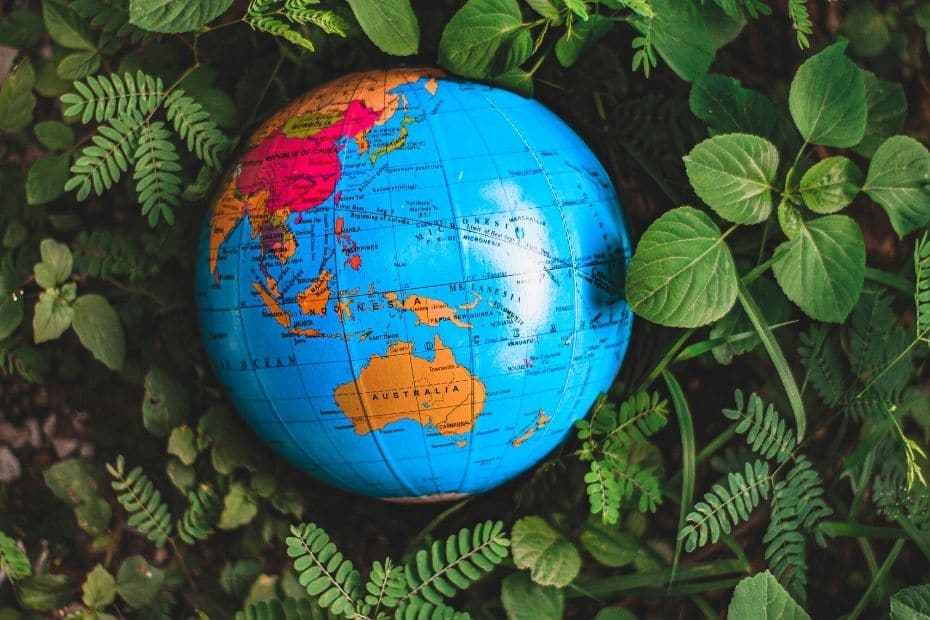
Here are the nationalities of the top 12 groups of foreigners living in Korea, as of 2024. As can be seen from the picture below, Asian countries take up nine of the 12 spots on the list and, apart from Canada (16th) and Australia (20th), Asian countries make up the rest of the top 20, too.
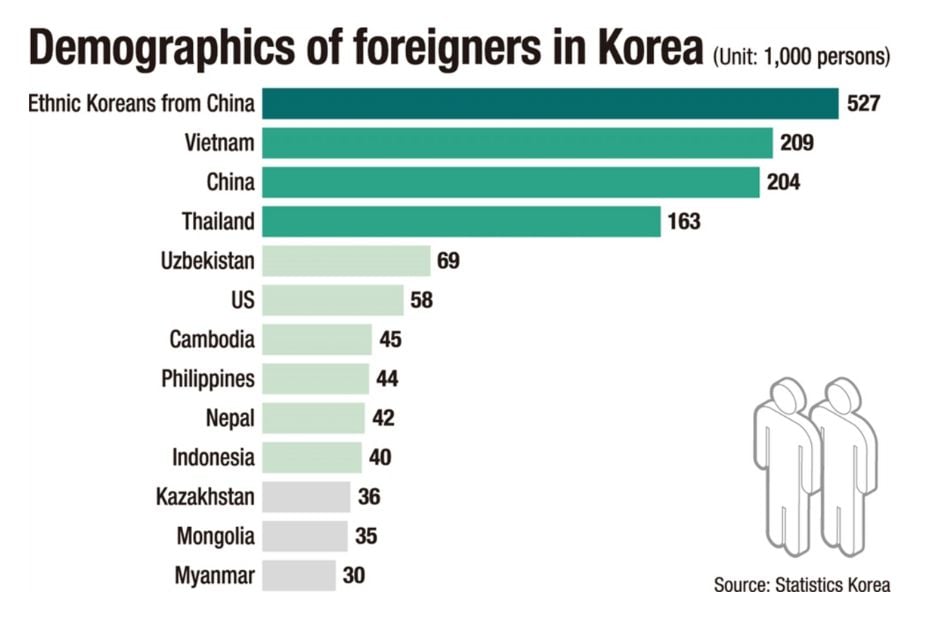
Japan used to be 5th on this list with 86,196 people in Korea in 2019 and Russia 6th with 48,511 in 2021. However, by 2024, Japan has dropped all the way down to 13th, with 28,631 Japanese people living in Korea. Russia has moved out of the top 12, likely due to sanctions from the conflict in Ukraine.
The fact that there are more Canadians and Australians living in Korea than British people certainly surprised me. I do know a lot of Canadians living in Korea, but I assumed more British people would want to live in Korea. Perhaps it’s the hot summer weather in Korea that puts off Brits.
In terms of how these foreigners in Korea are classified, there are 1,752,346 foreigners who reside in Korea with a foreign passport, 223,825 foreigners who have obtained Korean nationality, and 282,077 children of foreign residents born in Korea as of November 2022.
Besides returning ethnic Koreans, why are there so many foreigners in Korea these days? What motivates them to live and work in Korea? This next section will explain why foreigners live in Korea.
Why Do Foreigners Live In Korea?

Oscar-winning movies like Pandemic, record-breaking chart-toppers BTS, binge-worthy TV shows like Squid Game, and catchy YouTube sensations such as PSY and Baby Shark have all helped fuel the desire to experience life in Korea. As has Korea’s rapid economic growth, which has attracted people looking for work and opportunities from around the world.
The primary reason for foreigners moving to Korea is for ethnic Koreans to return to their homeland. After the Japanese occupation, Korean war, and life under cruel dictators that finally ended in the 1980s, Koreans have had many reasons to flee to more peaceful shores. And now they have many reasons to return to Korea.
There are many other reasons that foreigners want to live in Korea, including work, marriage, and study. Or a combination of these. Here’s a brief overview of the 3 main reasons why foreigners live in Korea and what they do here.
Foreigners Come To Work In Korea
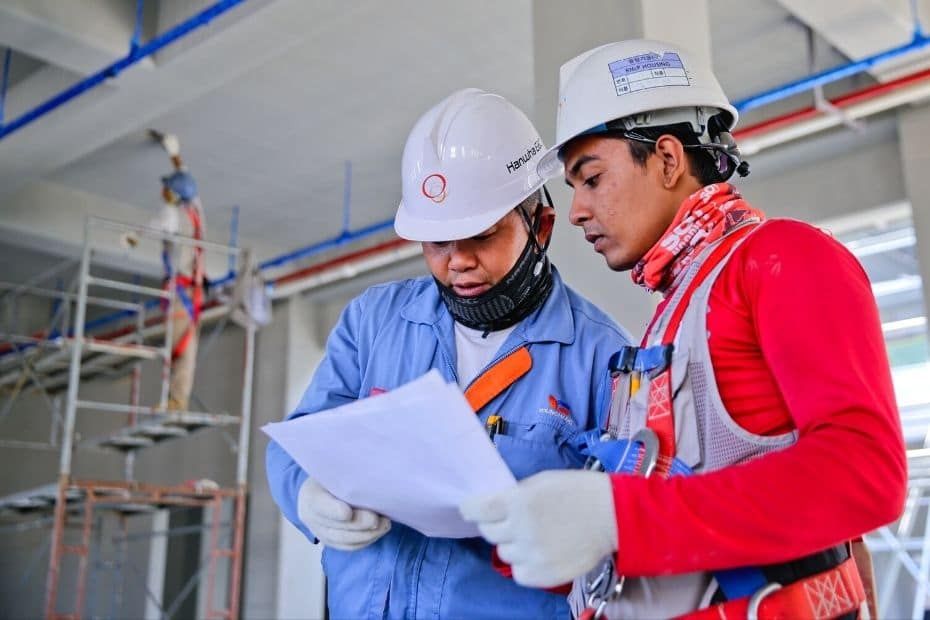
These days, with Korea’s economy growing strongly (Korea is ranked top 15 in GDP), many foreigners move to Korea to look for work. Korea has transitioned from a ‘least developed’ nation to a ‘developed’ country, thanks to The Miracle on the Han River – a term given to Korea’s rapid development after the Korean War. There are 923,000 foreign workers in Korea in 2025, an increase of 80,000 vs. 2022.
These foreigners do a range of different jobs, including positions on farms, in factories, as teachers, or even as a K-pop celebrities for the lucky few. Teaching English in Korea is a popular option for foreigners, with many coming to work at a hagwon or school. Teaching English is how I started working in Korea and I worked as an EPIK teacher for 5 years before moving to teach at a Korean university.
Whilst teaching in Korea is popular among the foreigners in Korea that I know, it certainly isn’t the main occupation for most immigrants in Korea. The largest sector for foreigner workers in Korea are the mining and manufacturing sectors, which account for 44.6% of all foreigners working in Korea, much larger than wholesale and retail sales, hotel, and restaurant businesses (18.4% combined).
The most common industries for foreign workers in Korea are the following sectors:
- Agriculture
- Forestry and Fishing
- Construction
- Mining and Manufacturing
- Electricity, Gas, Steam, and Air Conditioning Supply
- Transportation and Storage
- Information and Communications
- Financial and Insurance Activities
Korea is an exporting country, one that has a lot of manufacturing and production, as well as a growing services industry and high-tech companies. According to a survey by workers in Korea, ‘high wages’ (70.9%) was the main reason for moving to Korea, followed by a ‘good working environment’ (10.7%).
With a relatively low cost of living, many expats in Korea can work and save, as well as enjoy a comfortable life. Eating out is not expensive, accommodation costs are often less than in other developed economies, whilst taxes are also lower than in the other developed countries.
If you’d like to know more about working in Korea, check out my guide to How To Apply For EPIK and start a new life working in Korea as a teacher in Korea.
Foreigners Getting Married In Korea
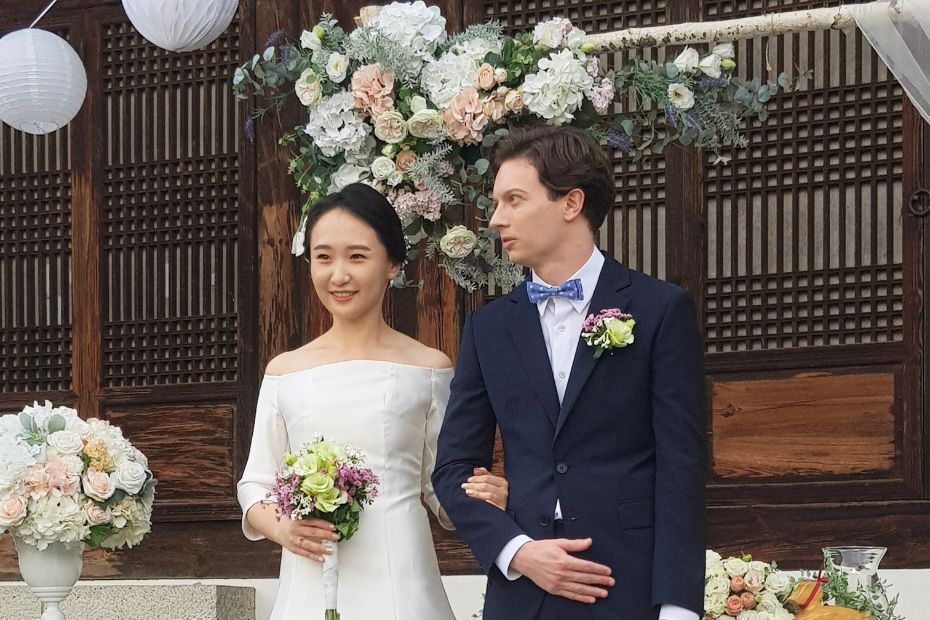
Of all the foreigners living in Korea, over 175,756 are married to a Korean person as of November 2022. The majority of these are foreign women (over 80%) who have married Korean men, with the rest being foreign husbands (under 20%).
There have been a number of initiatives to encourage foreign women to marry Korean men, including financial incentives that started as early as the 1980s and still run today. These programmes help Korean men find wives, most of whom are middle-aged and live in rural areas where there is a significant gender imbalance.
The Korean government aims to bring foreign women to help repopulate Korea and halt Korea’s rapidly declining population. Many foreign brides come from China (60,000) or South East Asia, including Vietnam (44,000), the Philippines (12,000), and Thailand (5,000).
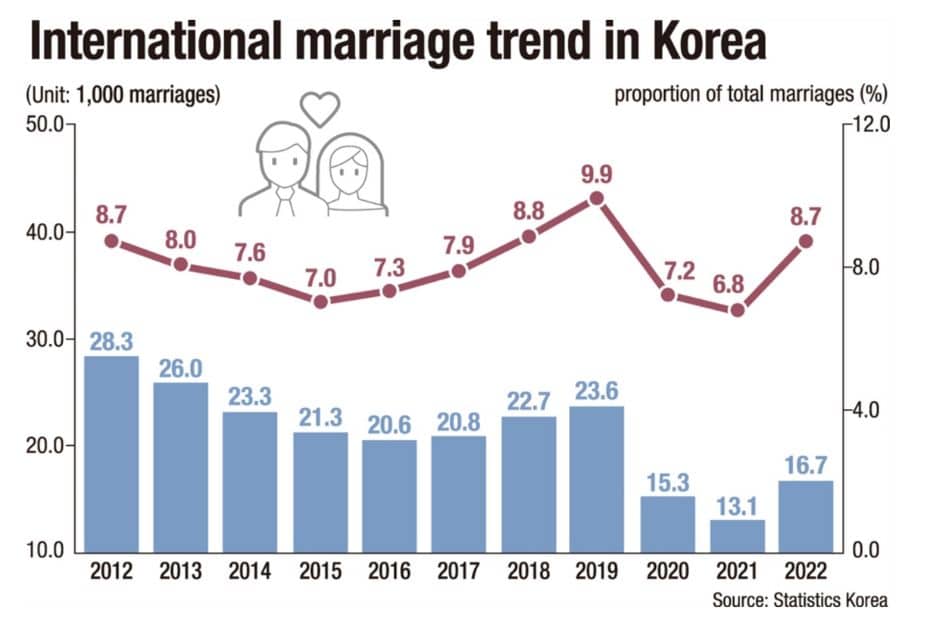
Of course, not all foreign spouses come through such arranged-marriage programmes, with many Koreans and foreigners meeting and falling in love in Korea or abroad. Despite the decline in foreign marriages during COVID, the number of international marriages started to increase in 2022.
International marriages made up 8.7% of all marriages in Korea in 2022 with a total of 16,700 international marriages recorded in 2022. Of that number, marriages with a Korean husband totalled 12,000 (up 33.6% from 2021) and marriages with a Korean wife totalled 4,700 (up 13.2% from 2021).
Foreign wives from other parts of Asia made up the majority of the international marriages to Korean men, with 27.6% from Vietnam, 19% from China, and 16.1% from Thailand. Foreign husbands were primarily from the USA (29.6%), China (16.1%), and Vietnam (12.6%).
I am glad there are more international marriages and hope these help reduce some of the prejudice against foreigners that exists in Korea, as it does in every country in the world. For a funny look at romance in Korea, check out my silly article about the dangers of dating in Korea.
Foreigners Come To Korea To Study

Korea has worked hard to bring high quality education to everyone, which is why Koreans have one of the highest IQs in the world. Korean universities have been rising up the global ranks, with Seoul University ranking 31st in 2021, bringing in an ever-growing number of students. Foreign students come to Korea to study in Korean and English in a range of modern subjects.
The number of foreign students in Korea in 2019, before the pandemic, was around 160,000. This number dropped to about 152,000 during 2020 and 2021, before climbing again to beat the pre-pandemic levels. The latest figures for foreigners studying in Korea, released in 2024, show there are over 188,000 foreign students attending higher education in Korea in 2022.
This is the highest level of foreign students that Korea has ever recorded and shows continued growth in student numbers, up 20.9% from the previous year. Student numbers in Korea have surpassed the number of foreigners living in Korea for marriage for the first time ever. Foreign students from Vietnam were the largest group (38.3%), followed by China (27.7%) and Uzbekistan (6.4%).
As a university teacher in Korea, I teach foreign students from many different countries, including a lot of Chinese, Uzbek, and Mongolian students. They have many reasons to study here, including getting a job in Korea, working for an international company in their home country, or simply because they want to experience life in Korea for a few years.
Korean language courses are a popular option for people who want to live and study in Korea short term, with many courses running from 3 months to a year. This allows people to learn the language and experience life in Korea at the same time.
Where Do Foreigners In Korea Live?
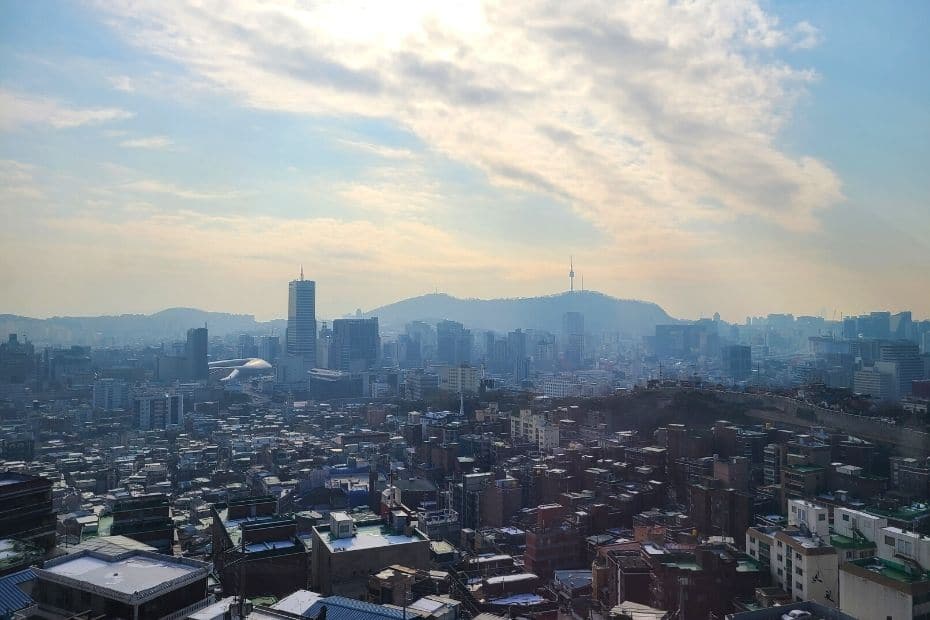
As with most of the native Korean population, most foreigners in Korea live in the greater Seoul area, which is made up of Seoul, Gyeonggi Province, and Incheon City. An interesting fact about Korea is that more than 50% of people live in this area, which takes up just 12% of the country’s land mass.
The largest foreigner population isn’t actually in Seoul itself. More foreigners in Korea live in Gyeonggi Province (360,000) than in Seoul (260,000) and the top 5 cities with a high proportion of foreigners are all in Gyeonggi Province (Ansan, Suwon, Siheung, Hwaseong, and Bucheon).
Incheon is unsurprisingly 3rd (66,000) and South Gyeongsang Province 4th (63,000). South Gyeongsang Province includes Busan, an area famous for its ports and international connections. There are foreigners all over Korea. From Korea’s other large cities, such as Ulsan, Gwangju, Daejeon, or Daegu, to the rural towns and villages tucked away between Korea’s many mountains.
Which is the best place to live in Korea as a foreigner? Well, that certainly depends on you. Some prefer the busy city life found in Seoul or Busan, whilst others (I know a few) want to settle down and enjoy a rural life, growing rice and keeping chickens.
Whatever your preference, there’s a range of places to live and settle down as an expat in Korea. Personally, I’d go for the scenic beaches of Jeju Island if I had to choose.
Is The Number Of Foreigners In Korea Declining?
After decades of growth in the number of foreigners living and visiting Korea, which peaked in December 2019 at 2.5 million residents, the number of foreigners declined for the next few years. The obvious reason for this is the coronavirus pandemic, which resulted in many societal changes and a greatly reduced ability to travel and work in Korea.
Korean universities attract over 175,000 foreign students each year, who move to Korea to study on campus and experience Korean life. During the first year and a half of the pandemic, many Korean universities offered only online courses. Due to this, many foreign students stayed in their home countries instead of travelling to Korea.
With the exception of August 2021, the number of foreigners living in Korea decreased every month between the start of the pandemic and 2022. Why was August an exception? This is most likely due to students moving or returning to Korea for the autumn semester, which begins on September 1st.
Due to the 14 day quarantine active in 2021, many foreign students had to arrive in Korea in mid-August in order to clear quarantine in time to begin classes from September 1st. After this short reprieve, the number of foreigners living in Korea continued to fall, dropping to under 2 million by the end of 2021.
Will There Be More Foreigners In Korea In The Future?
Will the number of foreigners living in Korea increase in the future? I definitely believe there will be many more expats in Korea in the future. Whilst the coronavirus pandemic has temporarily reversed the trend, I think it will climb again soon and probably already has increased since the latest figures were released.
There are undoubtedly many people waiting to move and travel to Korea as soon as the borders are open. I know, as I meet them in the Korea Travel Advice group on Facebook every day. The desire to experience life in Korea hasn’t gone away. If anything, it’s like to have increased as Korean culture spreads around the world more and more.
Recent studies and projections show that not only will the number of foreigners living in Korea increase in coming decades, they will account for a larger proportion of the total population, too. Currently, foreign residents make up about 4.4% of the total population of Korea. However, the foreign population in Korea is expected to increase by 2040.
More importantly for Korea’s ageing society, foreigners will make up a lower proportion of the population aged over 65, which is expected to be 35.3% of the population by 2040. This means that foreigners will benefit Korean society by increasing the pool of available workers that have not retired.
Looking further into the future, the proportion of people living in Korea aged 65 and above is expected to rise to 46.4% by 2070, putting a bigger strain on the Korean government’s finances. Korea’s declining birth rate is contributing to a shrinking population and it is predicted that Korea’s population will be 27% lower than it is now, totalling 37.6 million.
The expected fall in Korean population and the increase in the number of retired people in Korea in coming decades could have a positive effect on the number of foreigners living in Korea. There appears to be a move away from tight immigration controls to a looser border policy that will welcome more foreign workers and expats.
Lee Kyo Yong, a researcher at the Korea Labour Institute said in a report published in 2022 that, “South Korea’s fast transition into an aging society coupled with its low fertility rates have increased demand for a foreign workforce.”
He went on to add that, “Korea needs to strengthen its immigration policy to cater to the needs of immigrants in terms of education and to ease the conditions for staying in this country.”
What’s Expat Life In Korea Like?
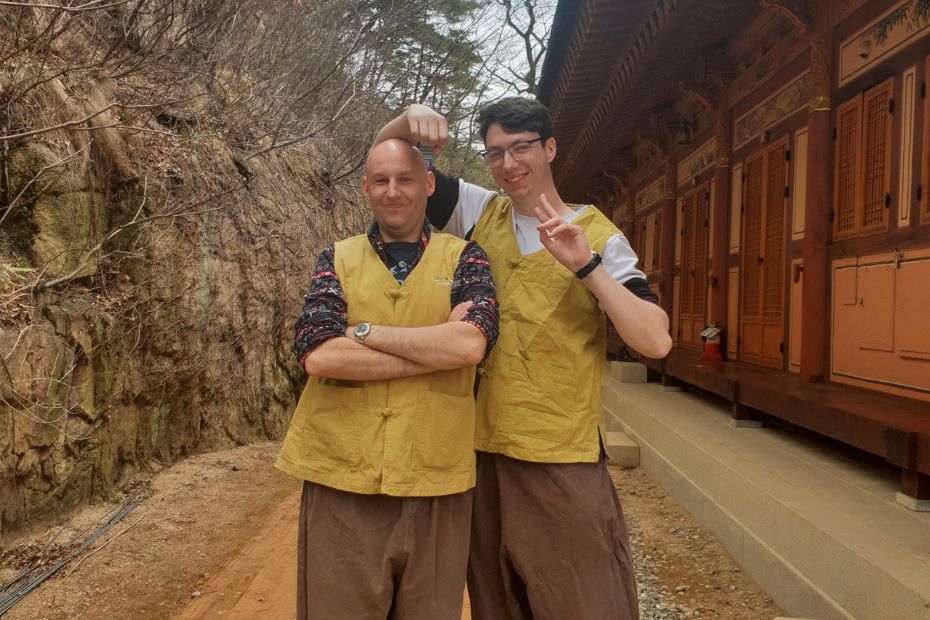
Expat life in Korea is a really mixed bag. There are some incredible things, there are some terrible things. It’s the same in most countries. But there are certainly some uniquely Korean problems and opportunities you can experience as a foreigner in Korea. Overall, as an expat in Korea, I’m content with life, but there are some issues, such as the extreme weather in summer and winter.
If you’d like to know more about the highs and lows of expat life in Korea, check out this article all about my expat life in Korea. If you’ve found some of the facts in this article interesting, you’ll love these interesting facts about Korean culture. I’ve written several articles about life in Korea, you can find them in the ‘Expat Life’ section of this site, including whether you need to learn Korean to live In Korea.
Sources For This Article

Here are some of the sources used for this article:
- Korea Times Article: Dec 16, 2024
- Korea Times Article: Nov 08, 2024
- Korea Times Article: Jun 23, 2022
- Korea Times Article: Jan 26, 2022
- Korea Herald Article: Sep 26, 2021
- Wikipedia: Immigration to South Korea
- Statista: Foreign Students In Korea
- Business Standard: Korean Economic Ranking
- Statistics Korea: Foreign Workers In Korea
Frequently Asked Questions
Here are some FAQs about the number of foreigners in Korea that should answer any other queries you may have.
How many foreigners live in Korea?
There are 2,258,248 foreigners living in Korea in 2022, down from a peak of 2,524,656 in December 2019. The main reason for the decline has been the coronavirus pandemic and restrictions to entry by the Korean government.
Where are foreigners in Korea mostly from?
The largest group of foreigners in Korea come from China, with 736,000 Chinese immigrants living in Korea in 2022. However, the vast majority of these Chinese immigrants (527,000) are ethnic-Koreans who have returned to Korea. Excluding ethnic Korean immigrants from China, there are more Vietnamese people living in Korea than Chinese people.
Why do foreigners live in Korea?
There are many reasons for foreigners to live in Korea. The main reasons are for employment, education, marriage, and long-term travel. The biggest reason is employment, with more than 1.3 million foreigners in Korea for employment reasons in 2022.
Is it hard to live in Korea as a foreigner?
There are good and bad parts of living in any country. Korea is one of the most homogenous countries in the world, which means that most of the population have the same ethnicity. Foreigners in Korea certainly stand out, which can make it hard to live in Korea. Prejudices against foreigners certainly exist, with some foreigners suffering more than others. Generally, the cost and condition of life in Korea is favourable, making it not so hard to live in Korea as a foreigner.
Where do most foreigners live in Korea?
Most foreigners in Korea live in the greater Seoul area, which accounts for around 50% of the whole population of Korea and includes Seoul, Incheon, and Gyeonggi Province.


